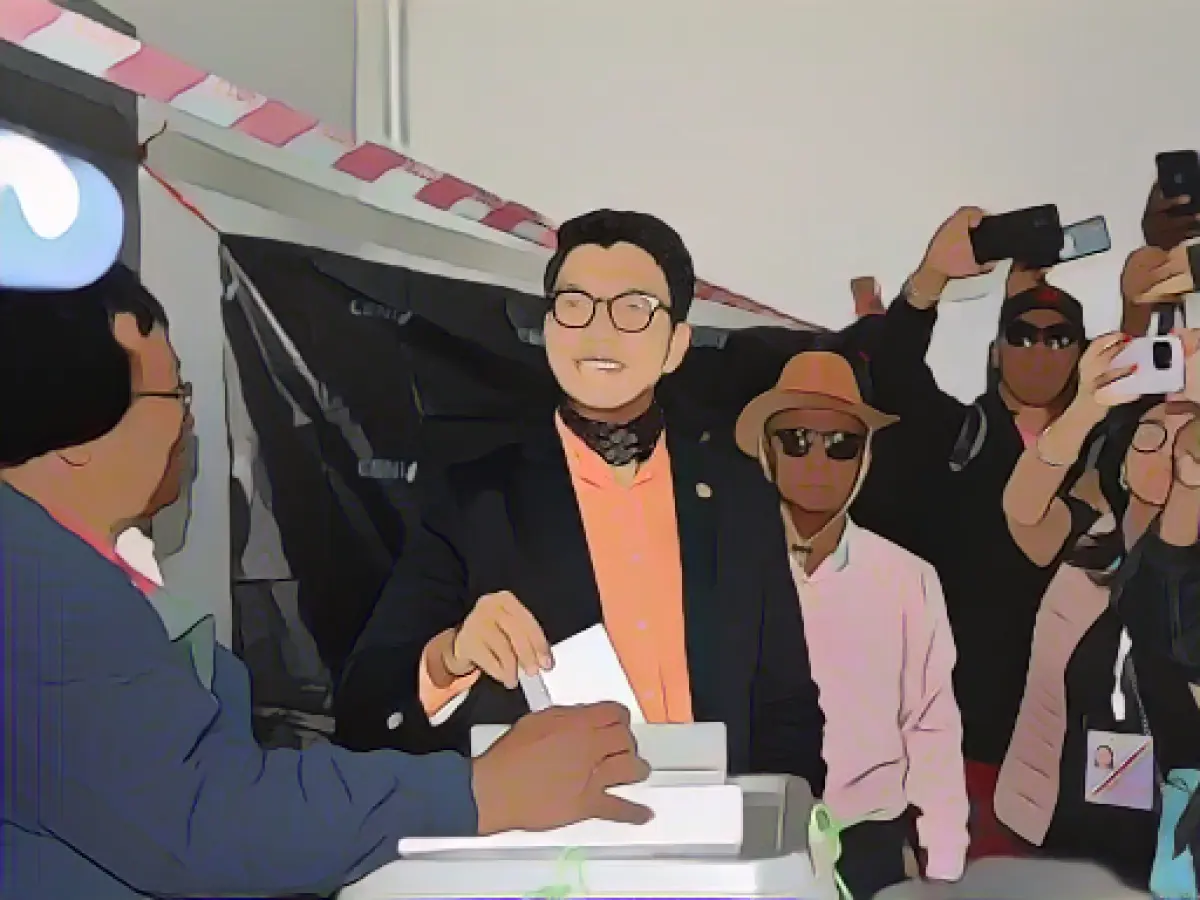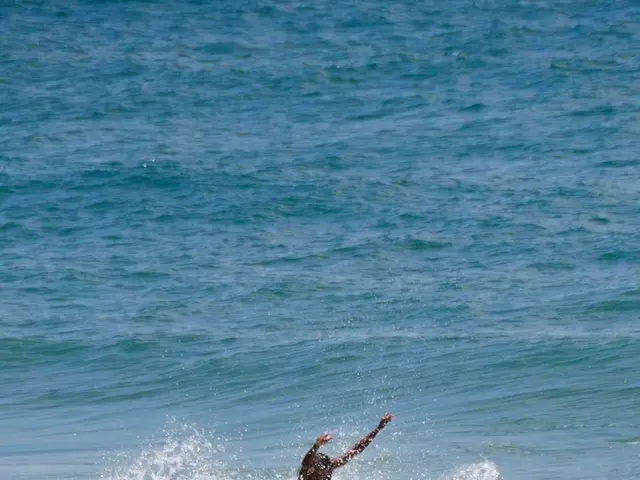In the bustling island nation of Madagascar, incumbent President Andry Rajoelina clinched a re-election victory with a substantial 58.95% of the votes, despite opposition calls for a boycott and allegations of manipulation and bribery.
The election, held on November 16, saw Rajoelina edge out candidates such as Siteny Randrianasoloniaiko, Marc Ravalomanana, and Sendrison Raderanirina, who garnered 14.4%, 12.1%, and 0.8% of the votes respectively .
Opposition candidates and other 10 candidates who had originally been listed on the ballots urged their supporters to stay away from the polls. However, the electoral commission reported a voter turnout of just over 46% .
The opposition strongly protested Rajoelina's re-election, accusing him of resorting to illegal means to cling to power. They alleged that he had bribed the electoral commission and the Constitutional Court to strengthen his campaign .
News of Rajoelina's re-election was met with criticism from the international community, including the United Nations, which expressed concern over the deteriorating human rights situation in Madagascar .
The opposition's claims of election rigging and bribery, however, did not succeed in challenging Rajoelina's victory. Critics have pointed out that the 2023 elections marked a shift from the democratic progress made since the 2001 coup .
Madagascar, known for its vanilla exports, has faced a series of challenges under Rajoelina's tenure. The poverty rate has risen, education levels have dropped, and the supply of electricity and drinking water has deteriorated .
The opposition's discontent and the international community's concerns will likely continue to shape the political landscape in Madagascar in the coming years.
[1] Enrichment Data
The opposition's challenges to Rajoelina's re-election were quite extensive. One key concern was his French nationality which they argued made him ineligible to run for president due to Madagascar's nationality code and constitution. The opposition also accused the government of manipulating the electoral process, dismissing their concerns over Rajoelina's dual nationality, and orchestrating an institutional coup to maintain power.
The opposition boycotted the election and held numerous protests, many of which were brutally dispersed by the police, leading to injuries. They argued that the election was not free and fair and represented democratic backsliding. Despite these allegations, Rajoelina was declared the winner of the November 16 election with a substantial majority.
These challenges and Rajoelina's re-election have sparked criticism from the international community, particularly the United Nations, which has expressed concern over the deteriorating human rights situation in Madagascar. The opposition's discontent and these challenges will likely shape the political landscape in Madagascar in the coming years.




